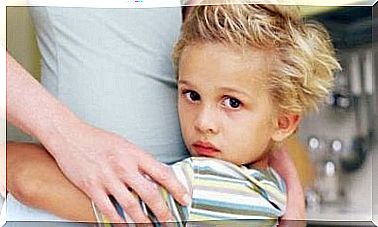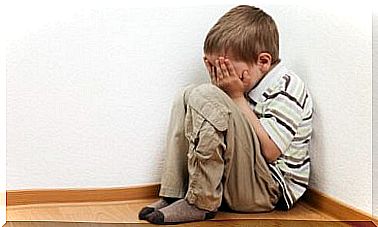School Hazing: How To Handle It
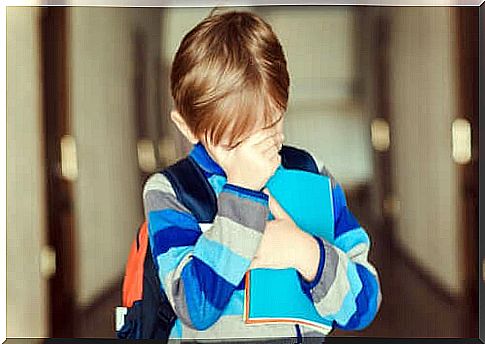
School hazing has gone from being a rite of passage into a real nightmare for many children. For many young people, the problem is really serious, especially when hazing becomes excessive, persists over time, or causes various mental disorders.
Let’s imagine the mind of a young person who first arrives in elementary school, high school or university. Logically, the student is nervous. Add to that the fact that older students take every opportunity they can to throw them in the mud, draw dirty messages on their faces, or provoke embarrassing situations.
What feelings and emotions do you think the child would experience in those moments?
Are there really positive aspects in these situations, as some people claim? Let’s see what the experts say and how both parents and students can act on hazing at school.
Dejuvenation at school and its consequences
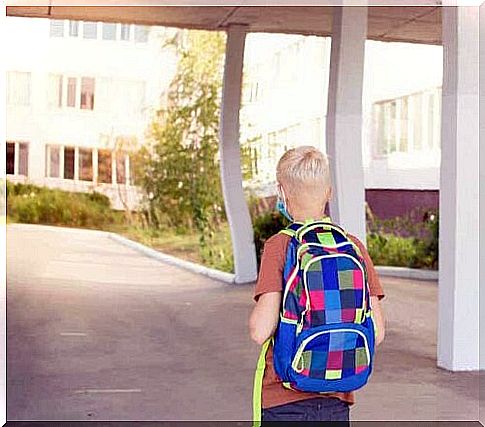
Professionals such as psychologist Loreto Gonzalez-Dopeso argue that hazing at school has negative consequences for children. This specialist is president of the No More Hazing Association in Spain and has become an active advocate against this behavior.
According to Gonzalez-Dopeso, hazing can be a kind of doorway through which aggressors can abuse other children. However, there is currently little research on this topic.
The psychologist recalls that there is only one rigorous study, called Novatadas, comprender para actuar (hazing, understanding to act).
It was carried out in the heart of the University of Comillas. It argues that perpetuating this ritual implies letting go of perverse consequences. They can also lead to very serious situations, such as abuse of power or bullying.
Today, the association headed by González-Dopeso is actively working to reduce these initiation rituals in the company of several universities.
Together they even managed to get many institutions to sign and adhere to the Manifesto of the Council of Universities of Spain to reduce this form of behavior that humiliates and mocks new students.
Preventing hazing at school
According to the few studies out there and the knowledge of professionals such as González-Dopeso, hazing refers to ridicule, humiliation, insult and abuse of others.
In fact, they go further by arguing that hazing violates the integrity and dignity of the most vulnerable. We therefore cannot tolerate these situations. Especially not within institutions that should stand out for their integrity, altruism, commitment, solidarity and cultural concern.
We would therefore like to highlight the following among the keys that professionals provide to put an end to this undesirable situation.
Interpret hazing at school as a form of abuse
Children should never undergo this type of treatment. Instead, we should make it clear to them that it is a form of abuse and encourage them to report it. It’s not fun, nor is it a rite of passage.
Students must form a group
It’s harder to get into an altercation when incoming students move as a group and stand up for each other. It can also be useful for teachers or figures who respect the rest of the students to guide newcomers.
Constant contact
It is necessary to maintain regular and direct contact with the family and with the student who suffers or may suffer from hazing. Knowing exactly what is happening makes it easier to intervene in the right way.
Only inform if it is safe
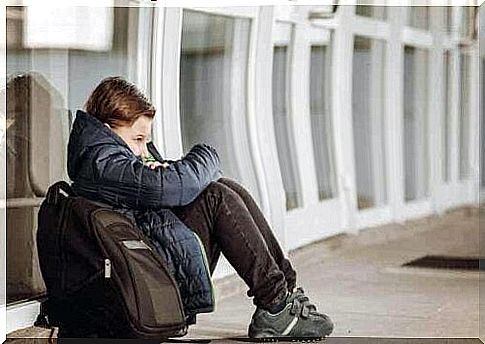
However, to avoid situations of constant abuse due to “traitor”-type accusations, it is important to provide students with safe channels to report abuse. It is important for training centers, colleges, residences, etc. to provide this type of communication to new learners.
Stay close to friends and acquaintances
Young newcomers will be safer and more relaxed together with older students. If they have friends or relatives at school, it’s a good idea that they stay together.
Appropriate contacts in the center
For example, once a new student arrives at a school, they have the opportunity to contact certain individuals of interest. For example, the university lawyer. This person can be very helpful in preventing hazing.
Beware of hazardous substances
Finally, it can be dangerous for a new student to agree to hazing that involves drinking alcohol, smoking tobacco and, in rare cases, even taking illegal substances. It is therefore important not to accept such practices.
When the time comes, one should contact the police, if necessary, to prevent hazing at school. In any case, it is important that we all work together to prevent this dangerous behavior from affecting our young people.




